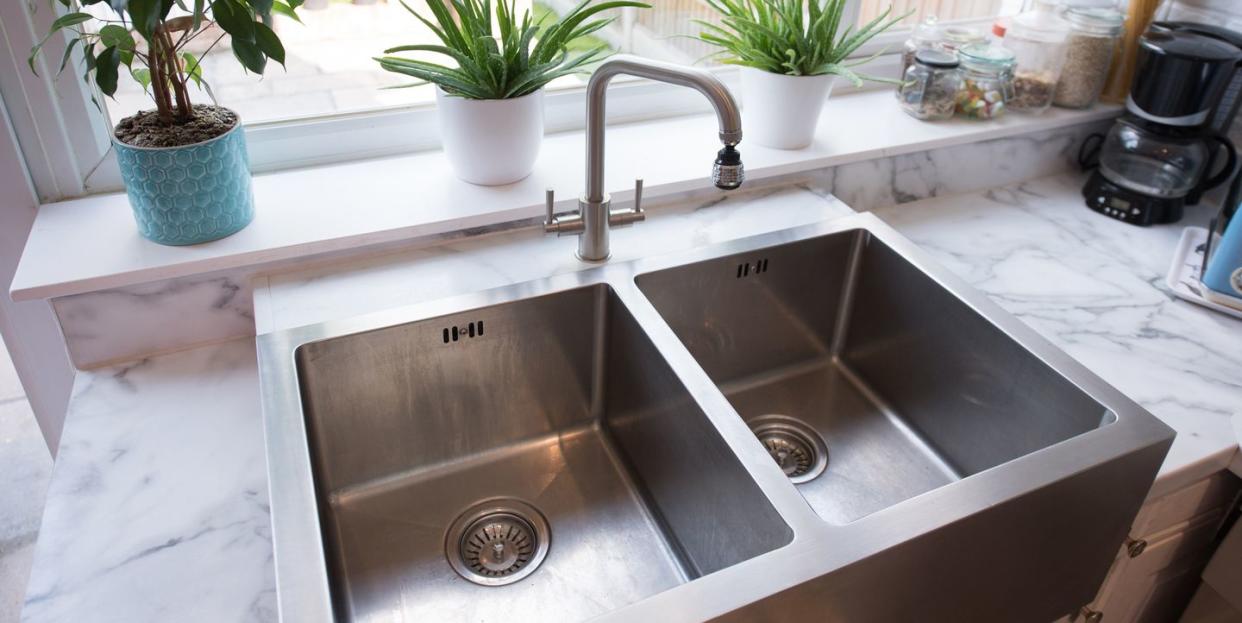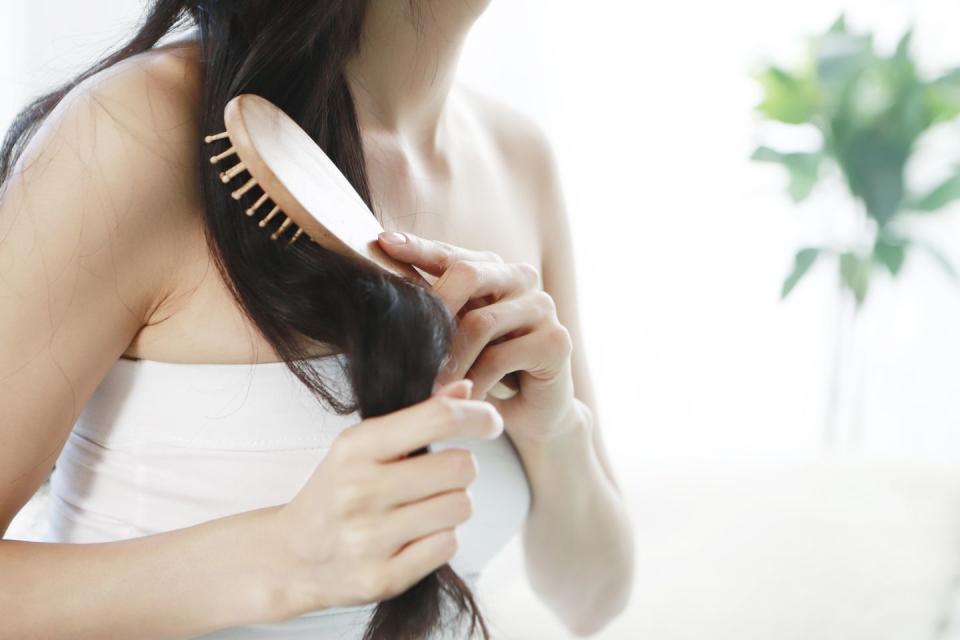6 ways to avoid blocked drains

Love Good Housekeeping and want more of our Triple-Tested recipes, home tips, fashion inspiration, essential consumer advice and so much more delivered to your inbox? Sign up to our FREE weekly newsletters, sit back and enjoy!
A blocked drain isn't just inconvenient; it can leave your kitchen or bathroom with a distinctly ‘eggy’ smell that can linger even once the problem is sorted.
Whether you find yourself standing in a puddle every time you shower or trying to wash your hands using the least water possible in the kitchen sink, a blocked drain is something we all want to avoid.
As prevention is better than cure, we’ve rounded up six ways to prevent blocked drains, so this is one thing you won't have to face in the future.
1. Protect your shower drain
Hair and soap suds are the usual suspects when it comes to a blocked shower drain – as anyone who has had to physically unblock one before will attest. One of the best ways to stop hair from catching and building up in the first place is to invest in a drain protector, such as the OXO Good Grips Shower Stall Drain Protector.
Cover the drain with one of these and loose hairs will be caught as water passes through it. Simply remove hair and bin it when it starts to build up.
2. Brush your hair before you shower
As well as fitting a drain protector in your shower, brushing your hair prior to taking a shower can help prevent blockages. This way, more loose hair will end up in your hairbrush rather than down the drain.

3. Flush plug holes regularly
Some of the eco-friendly solutions for unblocking drains, such as combining bicarbonate of soda with vinegar, are debated because they don’t have much power compared to chemical cleaners. However, if you use them down plug holes regularly, they can help to keep them draining freely.
Simply tip 125g of bicarb down the drain, and then pour 125ml of lightly heated vinegar on top (heating the vinegar for 15 seconds in the microwave should do the trick). You should hear some fizzing from the chemical reaction as it gets to work. Wait about five minutes, and then flush it through with hot water. Alternatively, the Institute of Plumbing and Heating Engineering recommends tipping a cup of soda crystals down the drain (while wearing gloves), followed by hot water. Either way, flush your drain through monthly to keep on top of potential blockages.
4. Don’t pour oil, grease or fat down the drain
Oil, grease and fat will cause major blockages if they find their way down the drain where they will congeal and solidify to clog pipes. On a small scale, these things will block your sink, but on a large scale they can lead to ‘fatbergs’ forming in the sewage system. That’s why you could be prosecuted or fined for flushing oil down the drains – it needs to be disposed of properly instead.
Follow your local council's rules on disposing of used fats, oil, and grease. There are services available that can collect used cooking oil, or some food waste recycling centres may accept it. Alternatively, seal the used oil in a container, such as a glass jar, and then dispose of it in your kitchen bin once it’s cooled.
GHI Tip: Wipe away residual oil and grease from roasting tins or baking trays before washing using paper towels.
5. Keep pet hair out of the washing machine
Blockages can form in your washing machine as well. These are all the more inconvenient because they can lead to malfunctions and expensive repairs, so you’ll want to prevent them as best you can.
Just as your own hair can cause blockages in the shower, pet hair can contribute to blockages in your washing machine. To help prevent this from happening, remove as much pet hair from your laundry before you wash it as you can. This applies particularly to items that are most likely to be covered with pet hair, such as pet beds and blankets. You can use a specially designed brush to do this, such as Fur Magic Reusable Pet Fur Remover.

6. Remove limescale
Many forget that limescale can also contribute to blockages. As it forms in pipes, it creates a smaller opening for the water and any debris to flow through. For this reason, it’s good practice to descale your dishwasher and washing machine as and when necessary. Use a product such as Calgon Power Tabs or Oust Descaler.
It’s an expensive addition, but installing a water softener can help prevent limescale in the future as well. This actively removes the minerals from the water that contribute to limescale, helping your appliances last longer.
You Might Also Like


